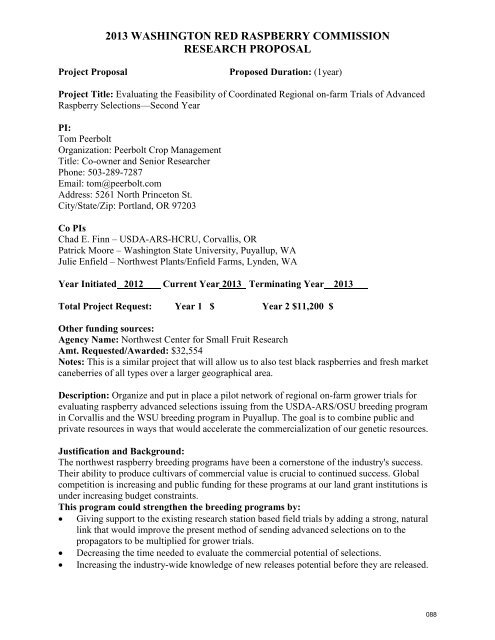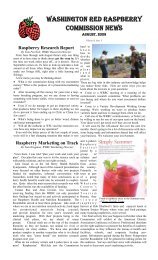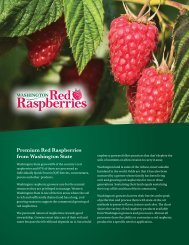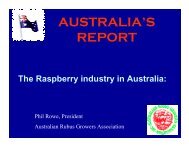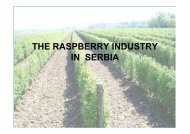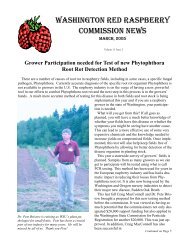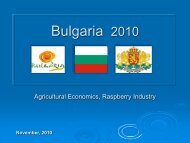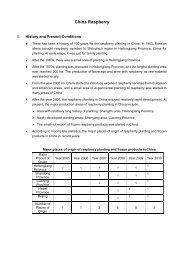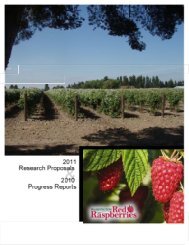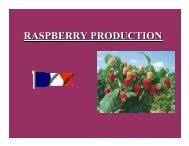2012 - Washington Red Raspberry Commission
2012 - Washington Red Raspberry Commission
2012 - Washington Red Raspberry Commission
Create successful ePaper yourself
Turn your PDF publications into a flip-book with our unique Google optimized e-Paper software.
2013 WASHINGTON RED RASPBERRY COMMISSION<br />
RESEARCH PROPOSAL<br />
Project Proposal<br />
Proposed Duration: (1year)<br />
Project Title: Evaluating the Feasibility of Coordinated Regional on-farm Trials of Advanced<br />
<strong>Raspberry</strong> Selections—Second Year<br />
PI:<br />
Tom Peerbolt<br />
Organization: Peerbolt Crop Management<br />
Title: Co-owner and Senior Researcher<br />
Phone: 503-289-7287<br />
Email: tom@peerbolt.com<br />
Address: 5261 North Princeton St.<br />
City/State/Zip: Portland, OR 97203<br />
Co PIs<br />
Chad E. Finn – USDA-ARS-HCRU, Corvallis, OR<br />
Patrick Moore – <strong>Washington</strong> State University, Puyallup, WA<br />
Julie Enfield – Northwest Plants/Enfield Farms, Lynden, WA<br />
Year Initiated <strong>2012</strong> Current Year 2013 Terminating Year 2013<br />
Total Project Request: Year 1 $ Year 2 $11,200 $<br />
Other funding sources:<br />
Agency Name: Northwest Center for Small Fruit Research<br />
Amt. Requested/Awarded: $32,554<br />
Notes: This is a similar project that will allow us to also test black raspberries and fresh market<br />
caneberries of all types over a larger geographical area.<br />
Description: Organize and put in place a pilot network of regional on-farm grower trials for<br />
evaluating raspberry advanced selections issuing from the USDA-ARS/OSU breeding program<br />
in Corvallis and the WSU breeding program in Puyallup. The goal is to combine public and<br />
private resources in ways that would accelerate the commercialization of our genetic resources.<br />
Justification and Background:<br />
The northwest raspberry breeding programs have been a cornerstone of the industry's success.<br />
Their ability to produce cultivars of commercial value is crucial to continued success. Global<br />
competition is increasing and public funding for these programs at our land grant institutions is<br />
under increasing budget constraints.<br />
This program could strengthen the breeding programs by:<br />
• Giving support to the existing research station based field trials by adding a strong, natural<br />
link that would improve the present method of sending advanced selections on to the<br />
propagators to be multiplied for grower trials.<br />
• Decreasing the time needed to evaluate the commercial potential of selections.<br />
• Increasing the industry-wide knowledge of new releases potential before they are released.<br />
088


